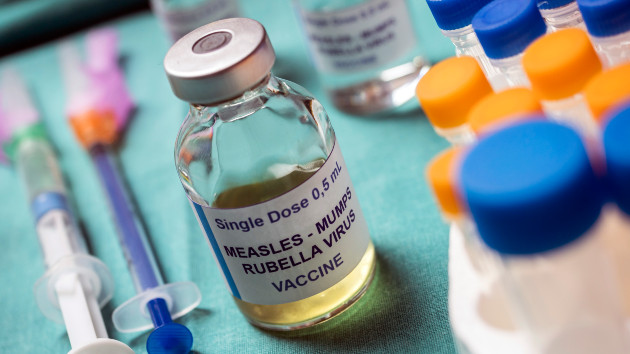How scientists are tracking mosquitoes that could be carrying deadly diseases
Written by ABC Audio ALL RIGHTS RESERVED on December 6, 2023

(NEW YORK) — Tracking one of the deadliest living beings on Earth will be the key to saving thousands of lives each year, researchers at the University of South Florida say.
The pesky bite of a mosquito has the potential to bring more than just itchiness and inflammation. More than 1 million people worldwide die from mosquito-borne diseases every year, according to the American Mosquito Control Association.
As global temperatures warm, the risk of contracting a mosquito-borne illness becomes more prevalent, simply because a hotter climate creates optimal breeding conditions for the insect.
Now, researchers at the University of South Florida are using citizen science — the practice in which the public voluntarily participates in scientific research — to help create artificial intelligence algorithms to help identify and stop disease-carrying mosquitoes before they are able to infect humans and other large mammals.
The citizen science aspect in the identifying process is critical, Ryan Carney, an assistant professor at the University of South Florida’s Department of Integrative Biology, told ABC News.
“As big of a problem that mosquitoes and mosquito-borne diseases are, we can all do our part to fight them,” he said.
In a small outdoor fountain containing thousands of mosquitoes, researchers are able to extract individual mosquitoes and use a zoom lens attached to a phone to capture an image of the mosquito. The image can then be uploaded via free apps to the Global Mosquito Observations Dashboard, a user-friendly web interface funded by the National Science Foundation that monitors invasive and vector mosquitoes.
AI is then used to train several algorithms to detect — in the larval or adult stage — the species of mosquito, which allows mosquito-controlled district officials to locate the mosquitoes capable of transmitting disease and eliminate them.
The database is essentially a “one-stop shop” to view all the mosquito observations throughout the world, Carney said.
Some of the most severe diseases mosquitoes carry and spread among humans are malaria, West Nile virus, Eastern equine encephalitis, yellow fever, dengue and Zika, according to the Centers for Disease Control and Prevention.
Some mosquito-borne illnesses such as malaria, dengue and chikungunya virus are on the rise after decades of progress in prevention.
In 2023, malaria was transmitted on U.S. soil for the first time in 20 years, according to the CDC. A total of nine transmissions were reported in multiple states.
Seven of those transmissions occurred in Sarasota County, Florida, prompting state and county health officials to issue mosquito-borne illness alerts in the region over the summer, when mosquitoes are at their most active.
“When you ask people what’s the most dangerous animal in the world, most people think of things like sharks,” Carney said. “It’s actually the mosquito that’s the deadliest animal on the planet, responsible for about 700 million infections each year and nearly one million deaths.”
Climate change could exacerbate the problem though, Carney said, describing the rise in global temperatures as a “perfect storm” for mosquito-borne diseases.
“It affects virtually every step of the transmission process, from the habitats to the mosquitoes to the pathogens to the human hosts,” Carney said. “…Higher temperatures makes everything worse.”
Worsening drought, one of the consequences of climate change, will likely cause people to store water, the containers of which can serve as a breeding habitat for mosquitoes, Carney said.
The resiliency of mosquitoes will allow them to thrive amid a warming climate. Even if the climate changes rapidly, mosquitoes are expected to adapt with it, as well as expand their ranges, Carney said. Research published in the past year alone has discovered “super” mosquitoes that have mutated to withstand insecticides as well as mosquitoes who have leaned how to avoid the pesticides used to kill them.
“Climate means that there’s going to be more areas with more mosquitoes, that are going to be spreading more disease to more susceptible people,” he said.
Humans will need to “remain vigilant” in monitoring mosquitoes and the diseases they carry in the upcoming years, Carney said.
Carney reminded the public to think of the “Three D’s” of mosquito protection and prevention: Drain standing water near your home; dress appropriately with long sleeves, light colors and loose-fitting clothes; and defend with insect repellent.
Copyright © 2023, ABC Audio. All rights reserved.
 KVSP
KVSP 




